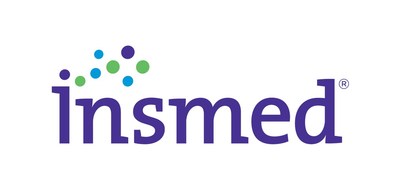New Subgroup Analyses from Landmark Phase 3 ASPEN Study of Brensocatib in Patients with Bronchiectasis Demonstrate Consistency with Positive Overall Trial Population Results
Rhea-AI Summary
Insmed Incorporated (Nasdaq: INSM) presented positive late-breaking subgroup data from the Phase 3 ASPEN study of brensocatib in patients with non-cystic fibrosis bronchiectasis at the CHEST 2024 Annual Meeting. The subgroup analyses showed consistent positive impact on the rate of exacerbations across most prespecified subgroups, aligning with the overall trial results. Notably, brensocatib 25 mg demonstrated a reduced decline in lung function (FEV1) at Week 52 versus placebo for all prespecified subgroups.
The drug was well-tolerated, with common adverse events including COVID-19, nasopharyngitis, cough, and headache. Insmed plans to file a New Drug Application with the FDA in Q4 2024, aiming for a U.S. launch in mid-2025 and European and Japanese launches in H1 2026. If approved, brensocatib would be the first approved treatment for bronchiectasis and the first approved DPP1 inhibitor.
Positive
- Consistent positive impact on exacerbation rates across most subgroups
- Brensocatib 25 mg showed reduced decline in lung function (FEV1) for all subgroups
- Well-tolerated safety profile
- Planned NDA filing in Q4 2024
- Potential to be first approved treatment for bronchiectasis
Negative
- None.
News Market Reaction
On the day this news was published, INSM declined 1.98%, reflecting a mild negative market reaction.
Data tracked by StockTitan Argus on the day of publication.
—Data Presented at the CHEST 2024 Annual Meeting—
"The positive results from the landmark Phase 3 ASPEN study have generated tremendous excitement among physicians and patients alike, providing hope for a much-needed approved treatment for bronchiectasis. Given the heterogeneity of this disease, it is striking that these new sub-analyses show a consistent positive impact on the rate of exacerbations across the majority of prespecified subgroups," said lead study investigator James Chalmers, MBChB, Ph.D., Professor and Consultant Respiratory Physician at the School of Medicine, University of
Consistent with positive results for the overall
Brensocatib was well-tolerated in the study. Treatment-emergent adverse events (TEAEs) occurring in at least
"We are incredibly excited to present subgroup findings from the
Insmed plans to file a New Drug Application with the
About
As part of the ASPEN study's conduct, more than 460 trial sites were engaged in nearly 40 countries. After excluding sites that did not enroll any patients and all sites in Ukraine, the total number of active sites in ASPEN was 391 sites in 35 countries. Adult patients (ages 18 to 85 years) were randomized 1:1:1 and adolescent patients (ages 12 to <18 years) were randomized 2:2:1 for treatment with brensocatib 10 mg, brensocatib 25 mg, or placebo once daily for 52 weeks, followed by 4 weeks off treatment. The primary efficacy analysis included data from 1,680 adult patients and 41 adolescent patients.
About Brensocatib
Brensocatib is a small molecule, oral, reversible inhibitor DPP1 being developed by Insmed for the treatment of patients with bronchiectasis, CRSsNP, and other neutrophil-mediated diseases. DPP1 is an enzyme responsible for activating neutrophil serine proteases (NSPs), such as neutrophil elastase, in neutrophils when they are formed in the bone marrow. Neutrophils are the most common type of white blood cell and play an essential role in pathogen destruction and inflammatory mediation. In chronic inflammatory lung diseases, neutrophils accumulate in the airways and result in excessive active NSPs that cause lung destruction and inflammation. Brensocatib may decrease the damaging effects of inflammatory diseases such as bronchiectasis by inhibiting DPP1 and its activation of NSPs. Brensocatib is an investigational drug product that has not been approved for any indication in any jurisdiction.
About Insmed
Insmed Incorporated is a people-first global biopharmaceutical company striving to deliver first- and best-in-class therapies to transform the lives of patients facing serious diseases. The Company is advancing a diverse portfolio of approved and mid- to late-stage investigational medicines as well as cutting-edge drug discovery focused on serving patient communities where the need is greatest. Insmed's most advanced programs are in pulmonary and inflammatory conditions, including a therapy approved in
Headquartered in
Forward-looking Statements
This press release contains forward-looking statements that involve substantial risks and uncertainties. "Forward-looking statements," as that term is defined in the Private Securities Litigation Reform Act of 1995, are statements that are not historical facts and involve a number of risks and uncertainties. Words herein such as "may," "will," "should," "could," "would," "expects," "plans," "anticipates," "believes," "estimates," "projects," "predicts," "intends," "potential," "continues," and similar expressions (as well as other words or expressions referencing future events, conditions or circumstances) may identify forward-looking statements.
The forward-looking statements in this press release are based upon the Company's current expectations and beliefs, and involve known and unknown risks, uncertainties and other factors, which may cause the Company's actual results, performance and achievements and the timing of certain events to differ materially from the results, performance, achievements or timings discussed, projected, anticipated or indicated in any forward-looking statements. Such risks, uncertainties and other factors include, among others, the following: the risk that the full data set from the
The Company may not actually achieve the results, plans, intentions or expectations indicated by the Company's forward-looking statements because, by their nature, forward-looking statements involve risks and uncertainties because they relate to events and depend on circumstances that may or may not occur in the future. For additional information about the risks and uncertainties that may affect the Company's business, please see the factors discussed in Item 1A, "Risk Factors," in the Company's Annual Report on Form 10-K for the year ended December 31, 2023 and any subsequent Company filings with the Securities and Exchange Commission (SEC).
The Company cautions readers not to place undue reliance on any such forward-looking statements, which speak only as of the date of this press release. The Company disclaims any obligation, except as specifically required by law and the rules of the SEC, to publicly update or revise any such statements to reflect any change in expectations or in events, conditions or circumstances on which any such statements may be based, or that may affect the likelihood that actual results will differ from those set forth in the forward-looking statements.
Contact:
Investors:
Bryan Dunn
Executive Director, Investor Relations
Insmed
(646) 812-4030
bryan.dunn@insmed.com
Media:
Mandy Fahey
Vice President, Corporate Communications
Insmed
(732) 718-3621
amanda.fahey@insmed.com
![]() View original content to download multimedia:https://www.prnewswire.com/news-releases/new-subgroup-analyses-from-landmark-phase-3-aspen-study-of-brensocatib-in-patients-with-bronchiectasis-demonstrate-consistency-with-positive-overall-trial-population-results-302270626.html
View original content to download multimedia:https://www.prnewswire.com/news-releases/new-subgroup-analyses-from-landmark-phase-3-aspen-study-of-brensocatib-in-patients-with-bronchiectasis-demonstrate-consistency-with-positive-overall-trial-population-results-302270626.html
SOURCE Insmed Incorporated








